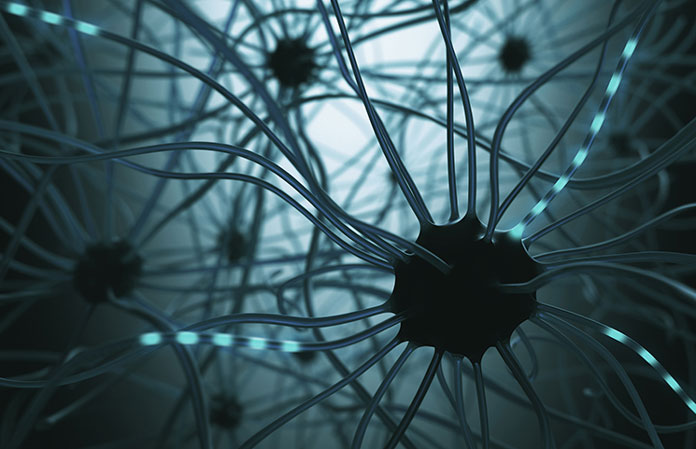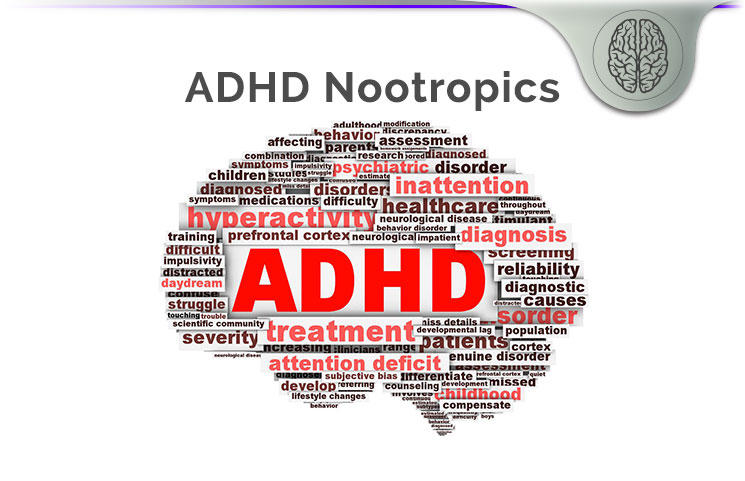Usage of nootropics (supplements that boost brain performance) have exploded in the past couple of years. A big part of this explosion in usage can be attributed to them being a healthy alternative to prescription and OTC drugs that enhanced concentration and reduced stress.
Not only have nootropics shown to be healthy alternatives, but in some cases, they have proven to be more effective alternatives. Not to mention they are easier and most times, more affordable to obtain. Keeping all of the brain boosting effects of nootropic supplements in mind, how effective are they in combating brain-related disorders such as ADHD? Let’s find out!
About ADHD
ADHD stands for Attention Deficit Hyperactivity Disorder, formerly called just Attention Deficit Disorder, or ADD for short. Another name it is known by is Hyperkinetic Disorder, or HD for short. At the end of the day, no matter which of the three terms you call it, they are all referring to the same disorder.
With that out of the way, let’s actually talk about what ADHD is. ADHD is a mental disorder that usually begins when a person is a child. It is characterized by behaviors of hyperactivity (hence the H in ADHD) and acting based on reaction instead of rational thought.

This definition may sound like typical childish behavior and many may scoff at it. However, ADHD is a legitimate health issue. You see, the behaviors associated with ADHD will not just go away as they get older and the disorder will impact how they do in school and in other social situations. In fact, instead of the behaviors associated with ADHD going away as the child gets older, the condition will actually worsen.
Did you know that about 20 percent of all children currently attending school globally have ADHD? Some may think that most of these children reside in third world country, but they would be wrong. In fact, as many as seven million school-aged children in the United States suffer from ADHD.
How To Know If Your Child Has ADHD?
Luckily, ADHD is not a disorder where it is hard to discern if your child has it or not. The symptoms are pretty clear-cut and just a simple analysis of your child’s typical behavior will show you if they are dealing with the disorder or not. Let’s look at some tell-tale signs of ADHD:
- Difficulty staying focused in school and in any extracurricular activities
- Not able to work well with others
- Being disorganized
- Not wanting to take part in exercises that require critical thinking
- Poor memory retention
- Being incredibly impatient
- Being loud all the time
- Little or no self-control
- Acting on impulse rather than applying a rational thought process
If your child has exhibited all or most of these behaviors for a sustained period, it would be a really good idea to take them to their doctor so they can be properly diagnosed.
What Can Cause ADHD?
It is not known what exactly causes this disorder, but there are quite a few risk factors associated with it.
One risk factor has to do with a family’s health history. If your family has a history of ADHD, your child has a higher chance of developing it.
Another risk factor has to do with substances that the mother consumes while being pregnant. Development of ADHD has been linked to consumption of alcohol by the mother while she was pregnant. Additionally, if the mother was living in a home with lead-based paint or was exposed to lead through other means during the course of her pregnancy, the chances of her child developing ADHD go up.
These risk factors could just be attributed to the “correlation is not causation” argument as there is not enough scientific proof to pinpoint them as exact causes for ADHD. However, the correlation seems to consistent to just be coincidence.

Typical Treatments For ADHD
There is no cure for this order, but there are a handful of treatments that a doctor would advise. A doctor would usually first recommend that the child attend various kinds of therapy to calm them down and get them to behave more properly. If the therapy proves ineffective, that is when a doctor may prescribe a drug-based treatment – usually drugs that stimulate the brain. This is a risky option because typical ADHD-treating drugs have very severe side effects that may end up making the condition worse down the road.
The potential ineffectiveness of the therapy treatments and the danger associated with the drug treatments make treating ADHD with risk-free nootropics an interesting premise. But, how effective are they, if at all?
Nootropics Vs ADHD
I already covered earlier that nootropics are health supplements that contain various ingredients to help enhance brain function and improve brain health. The supplements have been shown to enhance memory retention, stimulate interest, and boost focus. Based on that assessment, it would seem like a no-brainer (pun intended) that there would be some kind of tangible benefit for a child with ADHD to take these supplements.
In fact, various nootropics, including Deanol, Piracetan, noopept, Phosphatylserine, and Lecithin, are becoming more and more popular as treatments for children with ADHD. Why? Well as I stated before, they pose no risk as opposed to drug treatments like Ritalin. On top of that, they have actually been proven effective in mitigating the symptoms of ADHD. This is because these supplements cause more of the hormones norepinephrine and dopamine to be released in the brain. The more of these hormones that are in the brain, the better the brain performs.
Let’s take a look at how some individual nootropics help to treat ADHD. Starting first with piracetan. Studies have indicated that children who take this supplement have an almost 200 percent better performance in school-related activities than children in the control group. On top of that, other studies have shown that this supplement is potent in fighting the crippling effects of Dementia and Parkinson’s disease. People are more likely to retain their memories and maintain proper brain function, thus mitigating the effects of those horrible diseases.
Another nootropic, known as Gratiola, has been proven effective in treating ADHD as well. This nootropic is famous for its ability to reduce the hyperactivity-related symptoms of ADHD. On top of that, it shares the memory-boosting properties of piracetan. Also much like piracetan, Gratiola has been shown to improve the academic performance of ADHD-stricken children.
Just to clarify, these aforementioned benefits can be seen in people who are not dealing with any mental or behavioral problems as well.
Another interesting tidbit is that more and more scientific studies are coming out that show that traditional drug-based treatments for ADHD are actually ineffective in even mitigating the symptoms of ADHD. Do not be surprised when, in the future, these treatments are no longer advised by doctors due to their general ineffective and the health risks they pose to children and humans in general.

ADHD Review Summary
Brain boosting supplements and their effects on children with ADHD is still relatively new science and still resides outside the mainstream when it comes to treatments for ADHD. However, with increased awareness and more studies looking into their benefits, you can expect them to become a household treatment if current trends continue. Dangerous drug-based treatments such as Ritalin are on the way out, no matter how hard big pharmaceutical companies fight it.
It is my sincere hope that this article enlightened many of you who are out there with children suffering from ADHD. Have a serious talk with your doctor about the possibility of giving your child nootropic supplement treatments as opposed to prescribed drugs like Ritalin. And even if your doctor resists due to some financial commitment or whatever, the safety of nootropic supplements means that you can still administer them to your child to see if their condition improves.









